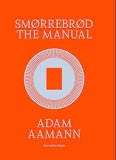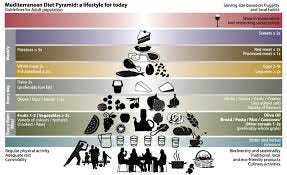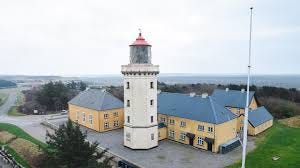I should have known better, but I am at heart an undying optimist. So, dear reader, against my better judgement and all prior experience, I bought some peaches from a Danish supermarket.
At least, it said ‘peaches’ on the label, but whoever was responsible for the small, hard, sour spheres I purchased should be sued under Trades Description laws. If they were peaches, then I am an olympic gymnast.
But then again, the same could be said for half the fresh produce on offer at the supermarkets I have visited recently in various towns across the country, from the lettuce that tasted of soil, to the pork that tasted of water, to the candy-floss textured chicken and rubbery leeks. I suppose I should consider myself lucky that the peaches weren’t actually rotten. There was plenty else that was.
“The disparity between the restaurants in Copenhagen and what you see in the supermarkets is horrible, and it’s getting worse,” smørrebrød chef Adam Aamann told me when I met him a couple of days later. “Often I go to the supermarket and I think ‘I need to take photos of this shit, and post it online’. Yesterday, outside the supermarket, they were displaying apples and oranges as the highlight of the season.” He shook his head in disgust. It was as if the entire New Nordic wave hadn’t happened.
Adam and I pondered the reasons for the apparent backwards direction of travel of Danish food culture. Had Covid done something to our tastebuds? Was it inflation? He blamed the supermarkets which, he pointed out, have an almost complete stranglehold over the Danish grocery market. They simply don’t need to worry about quality or diversity of produce. They have a captive clientele for whom they compete purely based on price.
My criticism will be considered by some as elitist. Others will point to Ukraine and Gaza. Climate change and Trump. Why am I wasting crucial newspaper real estate on yet another poncey gourmet whinge about the heinous farmed salmon and 90kr miso paste?
Well, you guys started it! For the past twenty years or so, Denmark has been telling the world what a food powerhouse it is. Your environmental campaigners boasted that you eat more organic produce than anyone else. Your nutritionists insisted that the world should switch to the Nordic diet. “Come look at our Michelin restaurants!” said your tourist board. “Behold our New Nordic revolution!” said your food writers. “Why are you all obsessed by French or Italian cuisine?,” wondered your newly Michelin-anointed chefs. “Give us some of that Intangible Cultural Heritage,” demanded your Culture Ministers.
Many who attended the MAD Symposium, the amazing, inspiring and enlightening gathering of chefs, food producers, academics, journalists and campaigners from around the world which took place in the big red circus tent on Refshaleøen at the end of May, would have had little idea that the Danish food revolution has quietly withered on the vine, like a grape forgotten by the harvesters.
But there were a couple of clues. The first was that very few of the speakers were Danish. Only one, actually, apart from the host, René Redzepi: that was Emilie Qvist, the chef who had the radical idea a few years ago of opening a seafood restaurant in Denmark’s largest fishing harbour, Hanstholm. She talked about her new venture, Lyspunktet, by the lighthouse in Hanstholm itself. I can’t wait to go; she’s amazing and to be applauded for her efforts, but, if anything, the supply of fresh fish has grown even worse in Denmark. It is so bad, these days I assume that any fish I buy will have to be rested in icy water to reduce the fish stink before I cook it.
The other clue were the lunches served at MAD7 on the two days. The first was a Thai meal overseen by Justin Pichetrungsi of LA restaurant Anajak (one of the speakers, who told the story of taking over his parents’ restaurant and turning it into one of the hottest destinations in the city). His food was possessed of such vivacity and frisky deliciousness that I am still thinking of it more than a week later. As an Australian friend of mine who lives in Copenhagen said to me: “I can’t believe these flavours. I haven’t tasted anything like this in Denmark, ever. You just can’t get these ingredients.”
The other meal was, at first glance, more Danish: it was prepared by chefs from the legendary ‘nose-to-tail’ London restaurant, St John - a simple salad of leaves, dressing and anchovies, but the anchovies were sweet and delicate, not the throat-scouring salty junk you buy in jars in Brugsen. And the main course was a pie filled with beef tongue - so tender and delicious. When was the last time you ate beef tongue in Denmark? Why not? Why can’t we buy it in supermarkets? Why can’t we buy any other cuts of meat aside from chicken breasts and tenderloins (ok, I am exaggerating slightly, as with the fish, the options are pitifully limited)?
It can’t be money. You are among the richest people on earth. It can’t be education. You are among the best-educated too. It can’t be lack of land, you are an agricultural powerhouse. It’s not lack of access to the sea either, is it? Or poor communications. All of Europe lies at your feet. Is it because you are all on Wegovy? Perhaps, yes, the fact that Wegovy, a product intended to deny its users sensual pleasure, a product created to stop people eating, was invented in Denmark, is not a coincidence. Perhaps you just don’t really care what you eat, as long as it’s cheap and convenient.
I can almost see the steam coming from your ears as you read this. You’re a Politiken reader; you know all this. You don’t need some whingeing English food ponce to spell it out, but there are many people in this country who do need a nudge, not least the politicians, the city planners, and the property company owners who let the budget supermarket chains desecrate our town centres with their hideously designed shop fronts. Because most of them don’t seem to care.
They should. All of us, even Wegovy patients - perhaps them especially - should at least have the option to eat properly.
At the end of MAD7, Redzepi quoted the French food writer, Brillat Savarin, who wrote: “The destiny of nations depends on the manner in which they feed themselves.”
For me, the key word is ‘manner’. It doesn’t matter whether you are eating tartelette, or tortillas, tuna or toast, it’s not the shape or form of your food that counts, it’s not the quantity, or luxury ingredients, but the quality, the fact that you eat at a table and not in front of a screen, that you cherish your food, appreciate it, enjoy it, perhaps, yes, know a little bit more about it, where it comes from, how it grows, and how to prepare it. And that, whenever possible, you eat together.
Danes, your destiny will be decided not on a battlefield or a stockmarket, but on your farms, in your seas, at your supermarkets, and at your dining tables.





